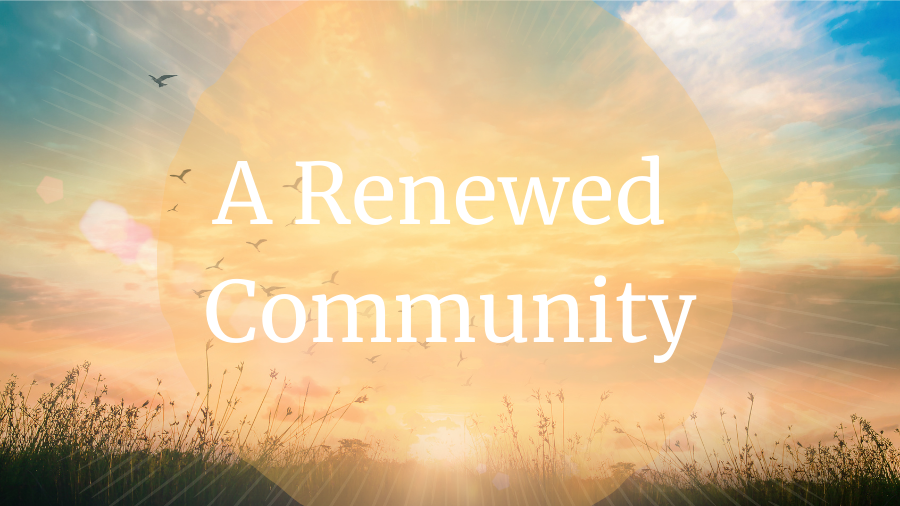Sermon Series:
A Renewed Community
Imagining a community renewed by grace seeking the good of the city
We want to be a community that centers the gospel because it has the power to change everything. But what do we mean by the gospel? The gospel is both truth and power, and the primary way it comes alive in our lives is through the Word of God, transforming us into the image of Christ “with ever-increasing glory.”
The gospel is a message of grace. Whether we tend towards legalism (being performance and achievement-oriented) or relativism (desire to be free from God’s law), the root problem is the same: we haven’t encountered God’s unconditional grace. When we do, it melts away our insecurity and empowers us to be a community marked by radical acceptance.
“When Christ calls a man, he bids him come and die.” We cheapen grace when we emphasize grace without calling people to a life of discipleship. This is the key to a full life. We find our lives only when we lose them by denying ourselves and seeking Christ. A renewed community is one that heeds Christ’s call to be shaped by the cross.
“Grace is not opposed to effort, it is opposed to earning. Earning is an attitude. Effort is an action.” Spiritual growth is not something that passively happens to us. It requires effort and incorporating spiritual disciplines into our lives. It’s not a self-help strategy but the way God designed for us to experience more of him.
Not only does God’s grace bring personal renewal, it also has the power to renew the world. God has a burden for the great cities of the world - the concentration of people, the outsized cultural influence, the vast majority of the world’s poor. Will we share God’s concern for the great city of New York?
Before we can risk for God, we must first rest in him. When looking at the Ten Commandments, it may feel odd that observing rest is included among other more obvious moral standards. But it reveals how important our rest is to God because our inability to rest shows whom or what we are ultimately serving.
Jesus calls us to take steps of faith, but our fears often get in the way of us following him. The way to overcome our fears is not by trying harder, but by surrendering, and we surrender by getting to know God better. As we know God better and understand what He has done for us, we naturally want to serve Him, and then steps of faith become a response.
The author Dallas Willard says, "Hurry is the great enemy of spiritual life in our day. You must ruthlessly eliminate hurry from your life.” Corrie ten Boom is also known for saying that if the devil can't make you sin, he'll make you busy. Hurry and distraction are seemingly harmless features of living in the city, but they steal away our attention -- and where our attention goes, there our devotion goes as well.
The theologian JI Packer called adoption the highest privilege that the gospel offers. When we understand our identity as children of God, it revolutionizes the way we pray. It fills us with a “shameless audacity” that emboldens us in prayer, especially as we ask for his kingdom to come. Our hope is that we would be a community marked by kingdom-centered prayer. (This is the final sermon in this series.)













